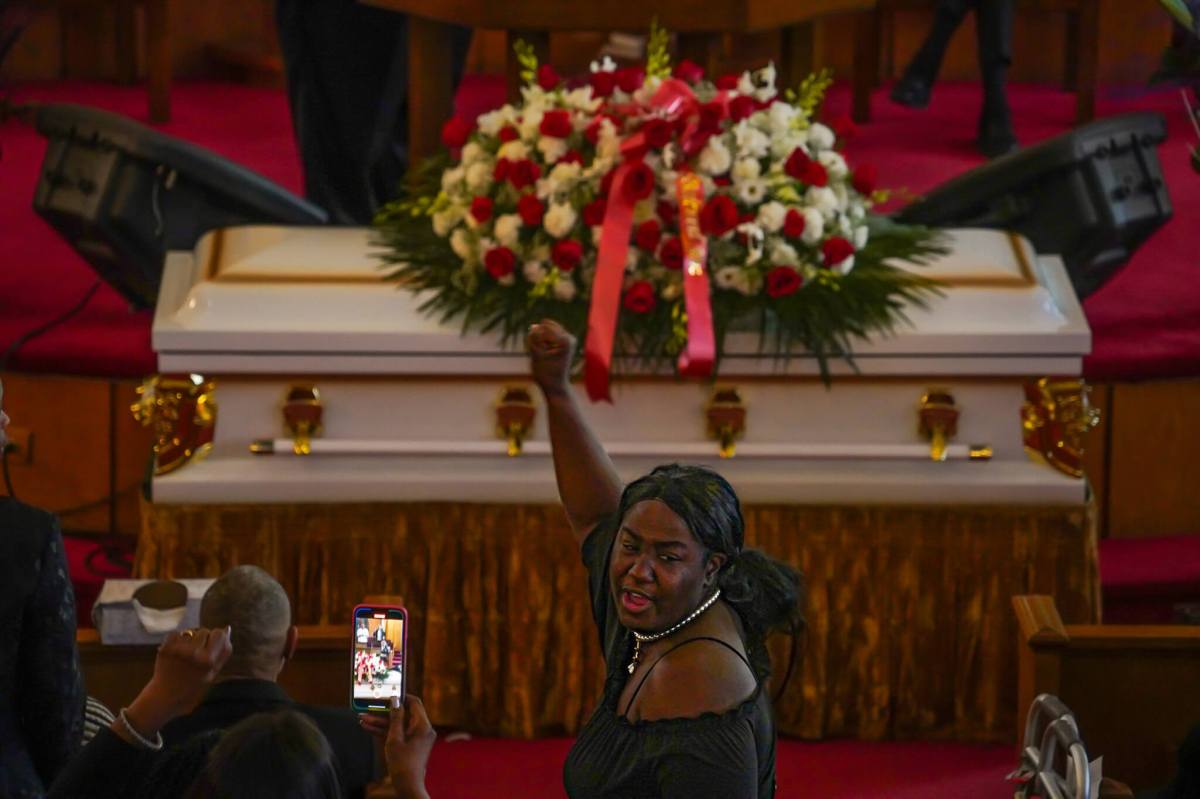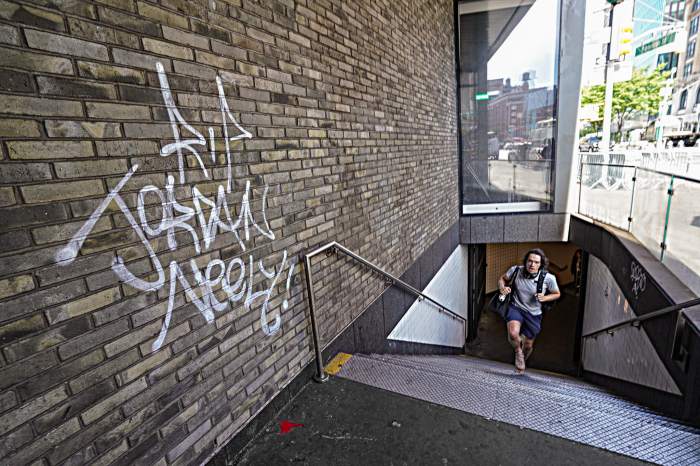Those who witnessed the choking death of Jordan Neely saw a man in crisis — and his death symbolizes so much of what is wrong in our deeply inequitable city.
The focus now should not just be what went wrong on that train, but what went wrong before Mr. Neely stepped on to it. And while we must of course scrutinize the flaws in our mental health system that contributed to his death, it is also crucial that we recognize the way we treat — or do not treat — substance use disorder is a deadly part of the problem as well.
Neely struggled with serious mental illnesses. When he was 14 years old, his mother was the victim of a shocking murder at the hands of his stepfather. He then had to take the stand and be cross-examined by his stepfather who represented himself at trial. In the years after, he was in and out of psychiatric care, on-and-off prescribed medication. Like many patients struggling with mental illness, he also self-medicated. At the time of his death, he was using K2 – an illegal, synthetic version of marijuana that can have severe and unpredictable effects – to deal with his depression and schizophrenia. But marijuana use actually contributes to symptoms of schizophrenia, particularly in young men.
Substance use often co-occurs with certain mental health problems, including the two Jordan Neely was facing, according to the National Institute of Mental Health. When drug use increases, mental health problems usually increase, too. That means we can’t treat mental disorders without helping people address their substance use.
But right now, waiting lists for core mental health and substance use disorder programs are lengthy – all across the state, not just in the city. Eighty-two percent of treatment providers have seen an increase in demand for their services over the last year.
On top of that, the costs associated with all aspects of operative programs and services are extraordinarily high. Treatment providers are facing a workforce crisis as our staff leave in search of better pay, including remote telehealth options and less emotional burden. While we strive to provide the best care, these barriers stretch us thin. And Jordan Neely’s death demonstrates just how devastating a lack of access to quality treatment can be for our community.
In the wake of Jordan Neely’s death, Governor Kathy Hochul highlighted her $1 billion capital plan to address mental health. In order for that money to make a real impact, the Governor and legislature must enact policies and allocate significant funds for substance use disorder treatment that addresses both those in immediate crisis as well as those who need a continuum of care. That includes passing legislation such as Treatment Not Jail and ensuring that there is the necessary funding to address issues of housing, employment and food insecurity.
We must ensure that New Yorkers desperately in need of treatment can get the care they need to permanently overcome addiction. Without that level of investment, we will sadly see more Jordan Neelys and fail to meaningfully address the mental health crisis — especially as ever-more powerful and dangerous drugs like fentanyl and xylazine become widely available.
There are many factors at play in Jordan Neely’s death, but one thing is certain. The K2 he was using to self-medicate made his problems worse and endangered his life before he entered the subway station that fateful day. The more we can increase access to vital substance use disorder treatments, the more Jordan Neelys we can save.
Ann Marie Foster is the CEO of Phoenix House NY/LI, the largest SUD treatment provider in New York. Assembly Member Phara Souffrant Forrest represents the 57th Assembly District in Brooklyn, which consists of the neighborhoods of Fort Greene and Clinton Hill as well as parts of Bedford-Stuyvesant and Crown Heights.




































